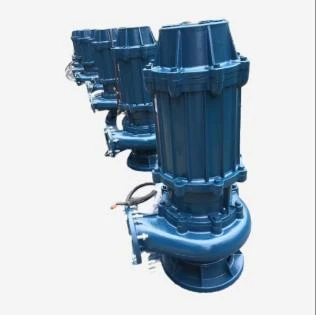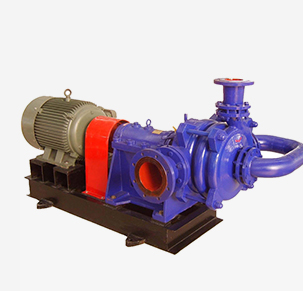TEL:
+86 13120555503
Macedonian
- Afrikaans
- Albanian
- Amharic
- Arabic
- Armenian
- Azerbaijani
- Basque
- Belarusian
- Bengali
- Bosnian
- Bulgarian
- Catalan
- Cebuano
- Corsican
- Croatian
- Czech
- Danish
- Dutch
- English
- Esperanto
- Estonian
- Finnish
- French
- Frisian
- Galician
- Georgian
- German
- Greek
- Gujarati
- Haitian Creole
- hausa
- hawaiian
- Hebrew
- Hindi
- Miao
- Hungarian
- Icelandic
- igbo
- Indonesian
- irish
- Italian
- Japanese
- Javanese
- Kannada
- kazakh
- Khmer
- Rwandese
- Korean
- Kurdish
- Kyrgyz
- Lao
- Latin
- Latvian
- Lithuanian
- Luxembourgish
- Macedonian
- Malgashi
- Malay
- Malayalam
- Maltese
- Maori
- Marathi
- Mongolian
- Myanmar
- Nepali
- Norwegian
- Norwegian
- Occitan
- Pashto
- Persian
- Polish
- Portuguese
- Punjabi
- Romanian
- Russian
- Samoan
- Scottish Gaelic
- Serbian
- Sesotho
- Shona
- Sindhi
- Sinhala
- Slovak
- Slovenian
- Somali
- Spanish
- Sundanese
- Swahili
- Swedish
- Tagalog
- Tajik
- Tamil
- Tatar
- Telugu
- Thai
- Turkish
- Turkmen
- Ukrainian
- Urdu
- Uighur
- Uzbek
- Vietnamese
- Welsh
- Bantu
- Yiddish
- Yoruba
- Zulu
Telephone: +86 13120555503
Email: frank@cypump.com
Фев . 15, 2025 12:54 Back to list
self priming sewage pump
In the realm of infrastructure and waste management, the demand for efficient sewage water pumps has surged dramatically. With urban expansion and the increasing need for sustainable waste management, these pumps are at the forefront, acting as the sinews of modern plumbing systems. For professionals in the fields of construction, civil engineering, and environmental management, understanding the nuanced complexities of sewage water pumps is crucial. This piece delves deeply into the intricacies of these systems, offering insights grounded in experience, expertise, authority, and trustworthiness.
Authoritativeness is bolstered by adherence to standards and guidelines from authoritative bodies. Organizations such as the Hydraulic Institute and the American National Standards Institute (ANSI) have outlined rigorous criteria for sewage pump design and operation. These guidelines assure stakeholders that pumps will perform efficiently while minimizing environmental impact. For instance, ensuring compliance with ISO 9001 for manufacturing processes guarantees the reliability of the pumps over time. Moreover, consulting with certified engineers who specialize in wastewater management enhances the authoritative nature of equipment selection and deployment. Trustworthiness in the context of sewage pumps comes from reputable manufacturers known for reliability and innovation. Brands that invest in cutting-edge technology, such as smart sensor integration for monitoring pump performance and Internet of Things (IoT) capabilities for remote management, stand out as trustworthy sources. These innovations enable proactive maintenance and optimize operational efficiency, reducing downtime and repair costs. When considering a sewage pump purchase, investigating case studies can offer valuable insights. Take, for example, a mid-sized city in the United States that revamped its failing sewage system with state-of-the-art pumps equipped with variable frequency drives (VFDs). This investment not only improved the efficiency of their wastewater system but also reduced energy consumption by up to 20%. Such cases underscore the importance of selecting pumps based on data-driven performance metrics and real-world successes. In conclusion, the nuanced world of sewage water pumps requires a balance of experience, expertise, authority, and trustworthiness. As urban landscapes evolve and sustainability becomes even more crucial, these pumps will remain pivotal in managing human impact on natural resources. Professionals armed with a comprehensive understanding of the latest technology, standards, and market trends will be best positioned to implement solutions that are both technically sound and environmentally responsible.


Authoritativeness is bolstered by adherence to standards and guidelines from authoritative bodies. Organizations such as the Hydraulic Institute and the American National Standards Institute (ANSI) have outlined rigorous criteria for sewage pump design and operation. These guidelines assure stakeholders that pumps will perform efficiently while minimizing environmental impact. For instance, ensuring compliance with ISO 9001 for manufacturing processes guarantees the reliability of the pumps over time. Moreover, consulting with certified engineers who specialize in wastewater management enhances the authoritative nature of equipment selection and deployment. Trustworthiness in the context of sewage pumps comes from reputable manufacturers known for reliability and innovation. Brands that invest in cutting-edge technology, such as smart sensor integration for monitoring pump performance and Internet of Things (IoT) capabilities for remote management, stand out as trustworthy sources. These innovations enable proactive maintenance and optimize operational efficiency, reducing downtime and repair costs. When considering a sewage pump purchase, investigating case studies can offer valuable insights. Take, for example, a mid-sized city in the United States that revamped its failing sewage system with state-of-the-art pumps equipped with variable frequency drives (VFDs). This investment not only improved the efficiency of their wastewater system but also reduced energy consumption by up to 20%. Such cases underscore the importance of selecting pumps based on data-driven performance metrics and real-world successes. In conclusion, the nuanced world of sewage water pumps requires a balance of experience, expertise, authority, and trustworthiness. As urban landscapes evolve and sustainability becomes even more crucial, these pumps will remain pivotal in managing human impact on natural resources. Professionals armed with a comprehensive understanding of the latest technology, standards, and market trends will be best positioned to implement solutions that are both technically sound and environmentally responsible.
Share
Latest news
-
ISG Series Vertical Pipeline Pump - Chi Yuan Pumps Co., LTD.|High Efficiency&Low Noise
NewsAug.07,2025
-
ISG Series Pipeline Pump - Chi Yuan Pumps | High Efficiency, Reliable Performance
NewsAug.07,2025
-
ISG Series Vertical Pipeline Pump - Chi Yuan Pumps Co., LTD.
NewsAug.06,2025
-
ISG Series Vertical Pipeline Pump-Chi Yuan Pumps|Efficient, Durable, Low Noise
NewsAug.06,2025
-
Wear-Resistant Slurry Pump for Mining & Industrial Sludge
NewsAug.06,2025
-
ISG Series Vertical Pipeline Pump: Advanced Solutions for Industrial Fluid Handling|Chi Yuan Pumps Co., LTD
NewsAug.06,2025










